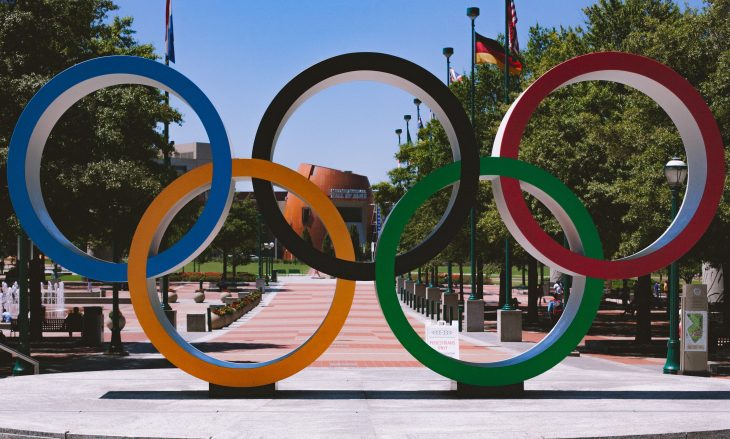
Not many know about the various Olympics facts that revolve around the much-awaited event. The Olympics, or the Olympic Games, excites sports fans from all over the world. Even people who never cared about sports tune in to catch the Olympic Games. Rooting for the athletes representing your country keeps you pumped. It’s also fine if no one from your country is competing. Watching the Olympics itself makes anyone enthusiastic for the athletes in the games.
The Olympics mesmerizes spectators from all over the world. The fact that the event doesn’t take place annually makes it even more special to watch out for. Now, we all know the Olympics gives us the chance to cheer for different athletes. They all worked hard to qualify for the games. However, did you know that the Olympics has been going on for centuries? Are you familiar with the different types of Olympics held every four years? To keep you posted, we came up with a captivating list of Olympics facts.
- The Olympics is held every four years.
- Olympia, Greece held the Ancient Olympics every four years for 12 centuries.
- Athens, Greece hosted the first Modern Olympics in 1896.
- The Summer Olympics caters to 33 types of sports.
- The Winter Olympics arranges events for 7 types of winter sports.
- The upcoming 2026 Youth Olympics plans to feature 35 types of sports.
- The International Olympic Committee finally allowed women to compete in the games in the 1900 Paris Olympics.
- Cities around the world make bids in hopes of hosting the Olympics.
- The Winter and Summer Olympics used to take place in the same year.
- The Olympics canceled their events three times during the two World Wars.
- Athletes from Greece, Great Britain, France, Switzerland, and Australia consistently competed in all the Modern Olympics ever held.
- Swedish pentathlete Hans-Gunnar Liljenwall was the first Olympic athlete disqualified from the games after testing positive for alcohol.
- Greek gymnast Dimitrios Loundras, the youngest Olympian, competed in the 1896 Athens Olympics when he was only 10 years old.
- Swedish shooter Oscar Swahn, the oldest Olympian, won a total of six medals in three different Olympic Games.
- Canadian equestrian Ian Millar is the first athlete to ever compete in ten different Olympic Games.
- From 1912 to 1948, the Olympics included art competitions in their events.
- At least one color from the Olympic Rings can be seen in every nation’s flag.
- The 2016 Rio Olympics marked the first Olympic Games held outside South America.
- Japanese pole-vaulters Shuhei Nishida and Sueo Oe fused their respective silver and bronze medals after they tied in second place in the 1936 Berlin Olympics.
- After the 1912 Olympics, the International Olympic Committee stopped producing medals made of real gold.
The Olympics started as a religious festival.
From 776 B.C., Ancient Greeks arranged the Ancient Olympics to hold sporting events honoring the King of Gods, Zeus. The athletes who competed faced off butt naked in front of over 40,000 spectators. Furthermore, the rules discouraged boxers from punching their opponent’s genitals. Back then, a rule in combat sports required the participants to indicate their surrender by raising their index fingers. However, most players end up dying before they could do so. In 384 AD, Roman Emperor Theodosius I decreed the ban of all pagan festivals thus ending the Ancient Olympics.
A Spartan princess won as the first female Olympian.
One of the Olympics facts loved by women includes the story of Kyniska. Spartan princess Kyniska (or Cyniska) cleverly found a loophole in the rules of the Ancient Olympic Games. The chariot race rewarded the horse owners instead of the riders who competed. Because of this, Kyniska won as the first female Olympian without lifting a single finger. Before the princess’ scandalous feat, Kyniska was raised like any other Spartan of her time. Their culture played no favorites between men and women. All were required to participate in tests of strength and knowledge. That kind of upbringing encouraged Kyniska to fulfill her goal of competing in Olympia, Greece.
Tarzan bagged six Olympic medals.
Film buffs better watch out for this surprising Olympics fact. Johnny Weissmuller was an actor who was famous for playing Tarzan in the 1930s and the 1940s. Before this, he trained to become a professional swimmer after dropping out of high school. He got the chance to compete in the 1924 Paris Olympics and the 1928 Amsterdam Olympics. He won a total of six medals.
Eddie Eagan was the first athlete to win gold medals in both the Summer and the Winter Olympics.
American boxer and bobsledder Eddie Eagan hailed as the first athlete to bag gold medals from both the Summer and the Winter Olympics. Eagan competed in the light-heavyweight boxing division during the 1920 Antwerp Summer Olympics. He then took part in the 1932 Lake Placid Winter Olympics as a member of the USA’s bobsled team.
Other athletes who competed and won medals from both the Summer and Winter Olympics include Norwegian ski jumper and sailor Jacob Tullin Thams who played and took home medals in the 1924 Chamonix and the 1936 Berlin Games. Afterward, German speed skater and track cyclist Christa Luding-Rothenburger competed and earned medals in the 1984 Sarajevo, the 1988 Calgary, and the 1988 Seoul Games. Then, Canadian cyclist and speed skater Clara Hughes bagged two medals from the 1996 Atlanta Summer Olympics and four medals from three Winter Olympics. Lastly, American sprinter and bobsledder Lauryn Williams succeeded in winning medals from the 2014 Sochi Winter Olympics and two Summer Olympics.

There was women empowerment in the 2012 London Olympics.
Women finally got the chance to compete in the Olympics during the 1900 Paris Games. Swiss sailor Countess Hélène de Pourtalès and English tennis player Charlotte Cooper won as the first female Olympians in the Modern Olympics. However, the 2012 London Olympics especially stood out in terms of women’s empowerment in sports. All countries sent female representatives in every sport at the Summer Games. Even first-time delegates Brunei, Saudi Arabia, and Qatar sent female athletes.
The 2008 Beijing Olympics is very lucky.
Superstitious sports fans breathe a sigh of relief when they hear Olympics facts like this one. The 2008 Beijing Olympics specifically opened during the auspicious hour of 8:00 PM on August 8, 2008. Part of Chinese culture links the number 8 to prosperity and confidence. Because of this, the host country began the beautiful opening ceremony with a bit of luck in mind.

Michael Phelps did not take home any medal from his first Olympics.
American swimmer Michael Phelps hails as the most decorated athlete of all time. He took home a total of 28 medals in just one sport, swimming. He currently holds the record of the most number of Olympic gold medals too. The first Olympics he qualified for was the 2000 Sydney Olympics. However, he failed to bag any medals back then. He only started winning medals in the 2004 Athens Olympics. Phelps competed under various swimming styles but became most famous for dominating the 100 m and 200 m Butterfly.
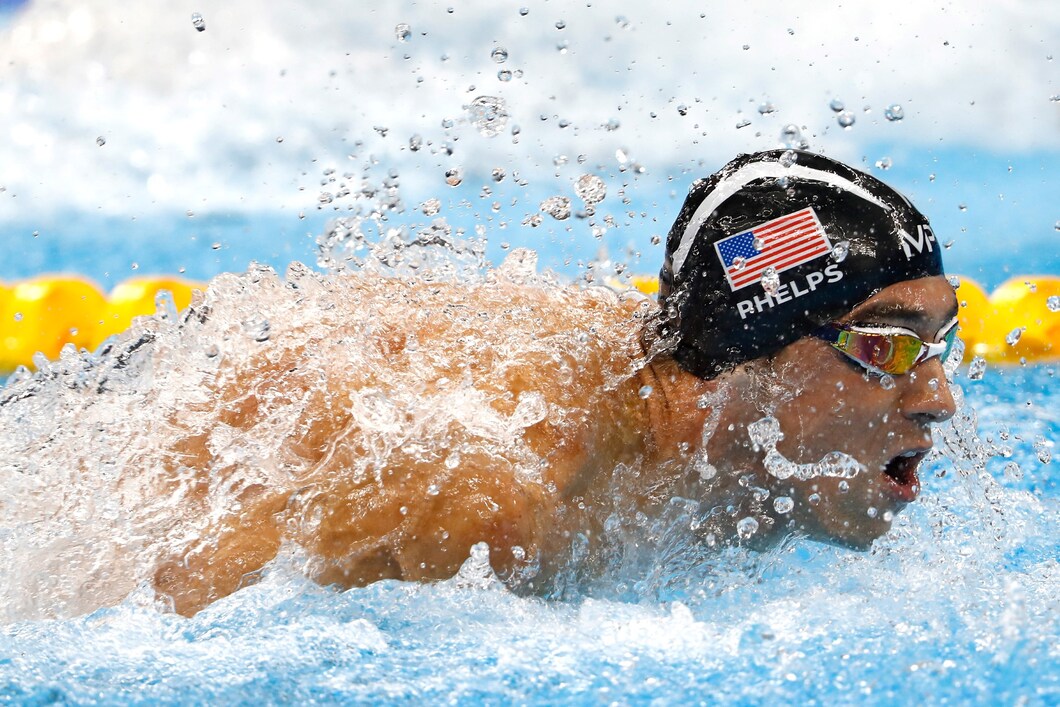
The Olympic Torch went to space.
The Olympic Torch that arrived in the 2014 Sochi Winter Olympics completed the longest relay in history. It traveled to the International Space Station aboard a Russian Soyuz rocket. Out of the 14,000 torchbearers, Soyuz Commander Mikhail Tyurin of the Russian Federal Space Agency, Rick Mastracchio of NASA, and Koichi Wakata of the Japan Aerospace Exploration Agency made the longest and fastest leg of the relay. Their team ferried the Olympic Torch 260 miles into space at the speed of 17,500 mph. Their goal centered on uniting the two symbols of peace among nations.

The 1960 Squaw Valley Olympics was magical.
Fairytale-loving sports fans rejoice when they hear Olympics facts that include renowned storytellers. Walt Disney took part in the organizing of the 1960 Squaw Valley Winter Olympics. He led the opening and closing ceremonies as chairman of the Pageantry Committee. The famous businessman hired over 5,000 entertainers in the opening ceremony alone.
The Olympic Committee used to award winners with crowns instead of medals.
When the Modern Olympics started in 1868, winners received olive wreath crowns instead of medals. Back then, the International Olympic Committee chose to follow the custom of crowning winners from the Ancient Olympics. They eventually used medals starting from the 1904 St. Louis Olympics.
Gender equality was showcased at the Olympics.
During the 1896 Athens Olympics, the athletes only competed in 43 events for athletics, tennis, gymnastics, swimming, weightlifting, fencing, wrestling, and shooting. The International Olympic Committee added more sports that passed their criteria. A sport in the Olympics must be played by men in 75 countries across at least four continents and by women in 40 countries on at least three continents. The IOC eventually added more factors considering the impact on gender equality.
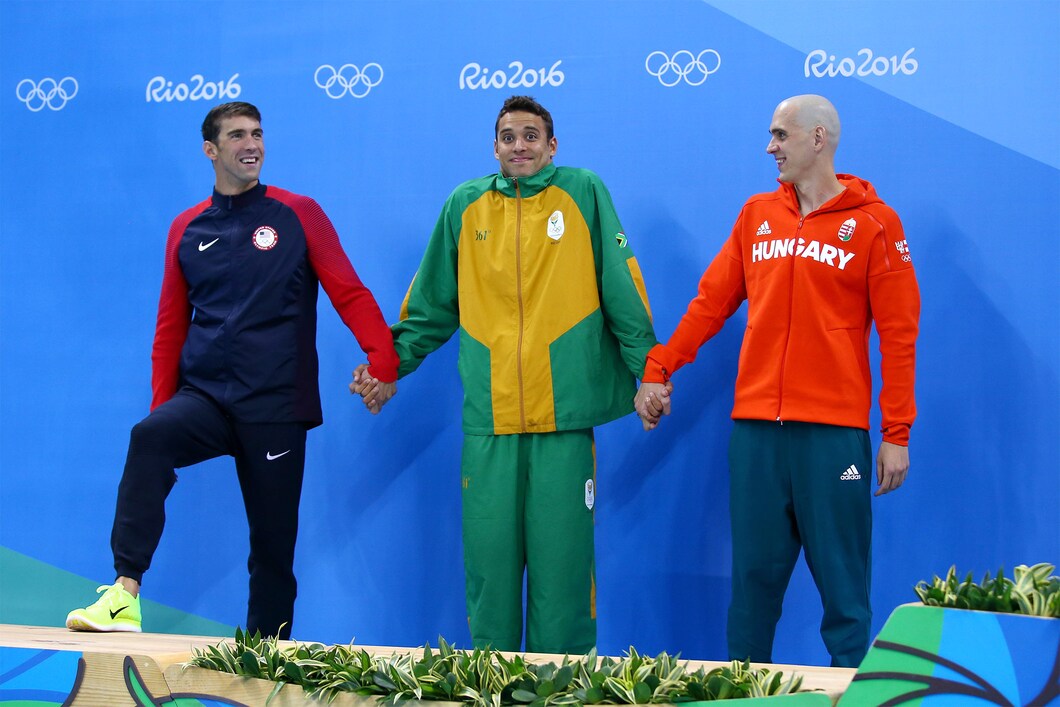
COVID-19 delayed the 2020 Tokyo Olympics.
One of the Olympics facts that broke the hearts of sports fans includes the one about the recent games. Officials postponed the 2020 Tokyo Olympics to a later date due to the COVID-19 pandemic. Instead of the July 24, 2020 schedule, the organizers pushed the opening to July 23, 2021. The International Olympic Committee met with Japan Prime Minister Shinzo Abe before the announcement. They agreed to hold the much-awaited Summer Olympics for the safety of everyone involved.

A runner bagged the Olympic gold with bare feet.
Ethiopian marathon runner Abebe Bikila competed in the 1960 Rome Olympics. He famously won the gold for men’s marathon with his bare feet. The athlete originally bought running shoes in Rome for the race. However, the shoes became uncomfortable when they gave him blisters while training. He ultimately decided to run barefoot which led to his record-breaking win in the Games. In the 1964 Tokyo Olympics, Bikila outdid his personal best and won the gold once again while wearing shoes.
It's rare to score a perfect ten in gymnastics.
Gymnastics fanatics rave about Olympics facts especially when it comes to Nadia Comăneci’s feat. The Romanian gymnast competed in various Olympic Games but made history in the 1976 Montreal Olympics by scoring a perfect 10 on the uneven bars. She was the first gymnast to do so. Hence, the scoreboard displayed her score as 1.0 instead of 10. At the same Olympics, Soviet gymnast Nellie Kim also scored perfect 10s for her routines on the vault and the floor exercise.
Coca-Cola was the first sponsor for the Olympics.
Coca-Cola claims the first sponsorship deal in the Olympics. The famous company sponsored the 1928 Amsterdam Olympics. Since then, Coca-Cola consistently supported the Olympic Games that followed.

An athlete was once stripped of his medals.
American athlete Jim Thorpe bagged two golds in the 1912 Stockholm Olympics. He was the first athlete of Native American descent to accomplish this feat. However, Thorpe lost his hard-earned Olympic gold medals when the International Olympics Committee learned of his professional minor league baseball career. Back then, the Olympics followed the strict rule of only allowing amateur athletes to join the games. The committee eventually returned the medals to Thorpe’s family in 1982.
Many countries boycotted the Olympics in 1980 and 1984.
Then U.S President Jimmy Carter decided to boycott the 1980 Moscow Olympics to protest the Soviet Invasion of Afghanistan. Because of this, a total of 65 nations refused to send their athletes to the games. In turn, the Soviet Union and 13 Soviet-led countries boycotted the 1984 Los Angeles Olympics.
No backflips are allowed in figure skating.
You probably heard of various controversial moves from Olympics facts in the news. However, you’ll be shocked to learn which one intrigues trainers and experts. French figure skater Surya Bonaly ended her mesmerizing routine with a one-foot backflip in the 1998 Nagano Olympics. Back then, organizers of skating competitions agreed to deem the jaw-dropping move as illegal from all events including the Olympics. Bonaly finished in 10th place after the judges deducted points from her score.
There was a scandalous feud between Tonya Harding and Nancy Kerrigan.
The feud between U.S. figure skaters Tonya Harding and Nandy Kerrigan garnered a media frenzy. The tense rivalry between the two figure skaters stood out when an attack on Kerrigan kept her from qualifying in the 1994 Lillehammer Olympics. Later on, authorities discovered that Jeff Gillooly, Harding’s ex-husband, attacked Kerrigan. This lead police to believe that Harding planned the beating of her rival. The U.S. Figure Skating Association then banned Harding from skating for life.

There were errors in the vault during the 2000 Olympics.
Various gymnasts struggled to perform on the vault during the 2000 Sydney Olympics. Eventually, Australian artistic gymnast Allana Slater complained to the Olympic officials about the low height of the vaulting horse. The officials then measured the vault and discovered that it did not meet the competition’s standard. Gymnasts who performed earlier competed once again after officials replaced the vault.
Age is not just a number in the Olympics.
Chinese gymnast Dong Fangxiao sparked one of the biggest Olympic age scandals. The athlete lost her bronze medal when officials learned of her real age. At that time, the gymnast’s actual age was only 14 years old. The competition required participants to be 16 years old and above. Officials from the 1999 World Championships also stripped her of the medals she won for their competition.
Dope doesn't win you gold.
Canadian sprinter Ben Johnson made his country proud when he bagged the gold in the 1988 Seoul Olympics. His recorded time also broke the world record for the 100-m sprint. Unfortunately, the athlete quickly lost his praises when his urine tested positive for the banned steroid stanozolol.
Coughs can keep you from winning.
One of the most debated Olympics Facts includes Andreea Răducan’s drug scandal. In the 2000 Olympics, the Romanian gymnast Andreea Răducan tested positive for pseudoephedrine. Because of this, the International Olympic Committee stripped the athlete of her gold medal. The banned substance found in Răducan’s system actually came from the cough medicine she was taking. Unfortunately, the IOC refused to reconsider its decision for Răducan.
A track and field star was stripped of her medals due to steroid use.
American track star Marion Jones disappointed her supporters when she admitted to using steroids to enhance her performance. Her revelation pushed the International Olympic Committee to strip the athlete of her medals from the 2000 Sydney Olympics. The IOC also took away Jones’ fifth-place Long Jump finish in the 2004 Athens Olympics.
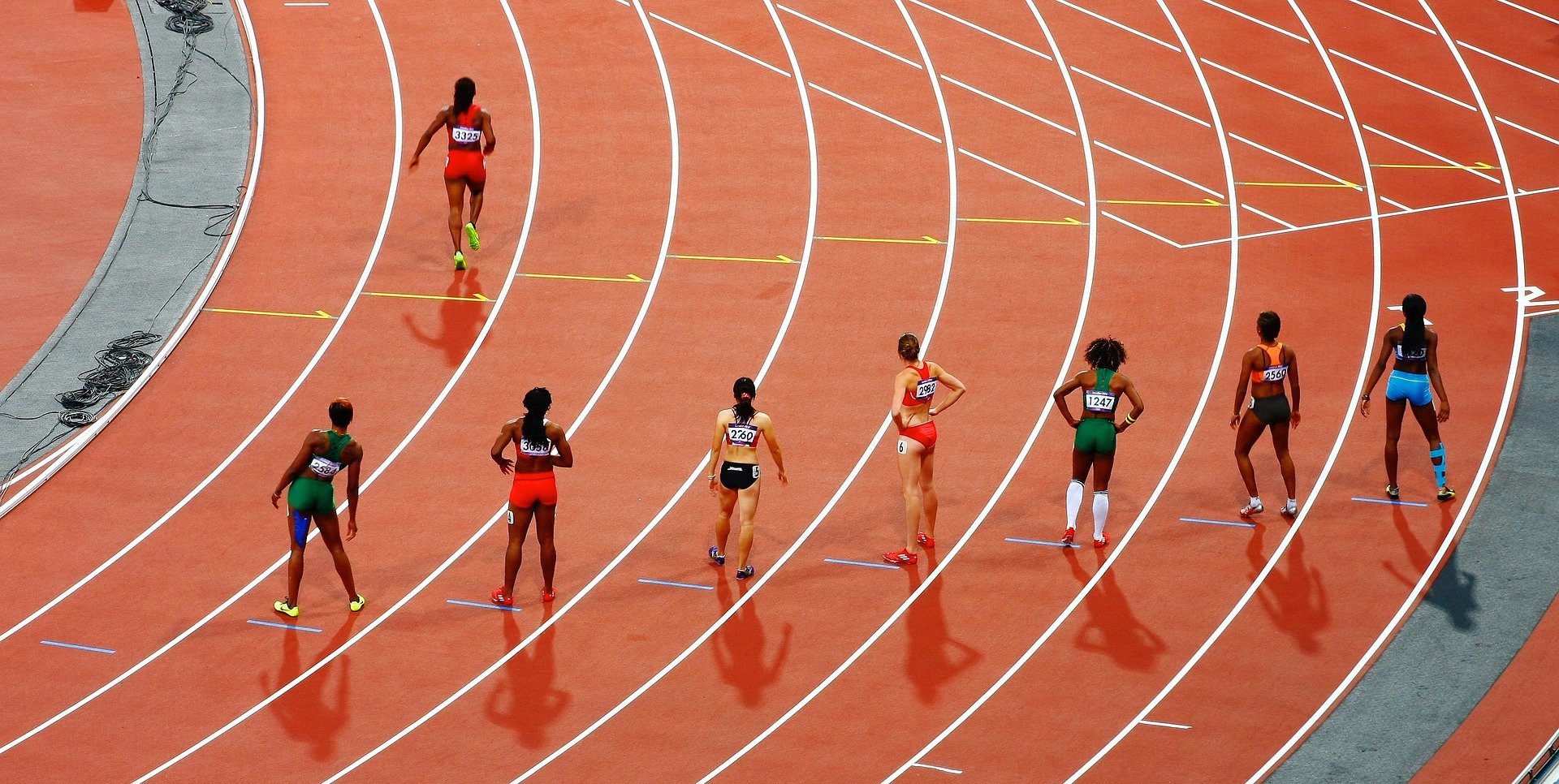
Whatever you do, don't kick the referee.
Officials decided to put a permanent ban on Cuban taekwondo athlete Ángel Matos after he kicked a referee in the 2008 Beijing Olympics. At first, Olympic officials only disqualified him for exceeding the time limit break on treating an injury. His violent behavior pushed the World Taekwondo Federation to ban him from competing for life.
Some athletes tried playing to lose.
One of the Olympics facts that came as a shock to sports fans included the intended losing of different badminton matches. This scandal occurred in the 2012 London Olympics. The Badminton World Federation caught eight players from China, Indonesia, and South Korea. They placed the decision upon learning that the athletes planned to lose certain matches. The players’ alleged reason for the intended loss stemmed from hoping to compete against easier opponents in other matches.
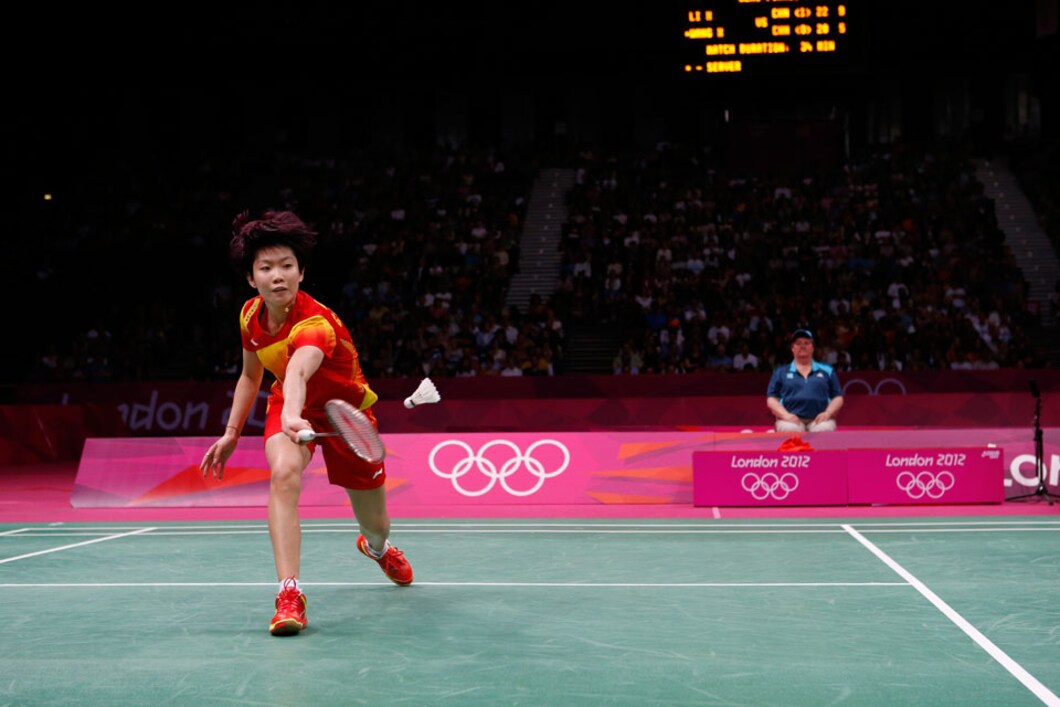
Figure skaters shared the gold medal in the 2002 Salt Lake City Olympics.
An alleged vote-trading scheme in the games came to light during the 2002 Salt Lake City Olympics. Judges announced that Russian figure skaters Elena Berezhnaya and Anton Sikharulidze won a higher score than Canadian figure skaters Jamie Sale and David Pelletier. After the release of winners, French judge Marie-Reine Le Gougne claimed that her bosses pressured her to vote for the Russian team. Because of this, the Olympic officials decided to reward both teams with gold medals.
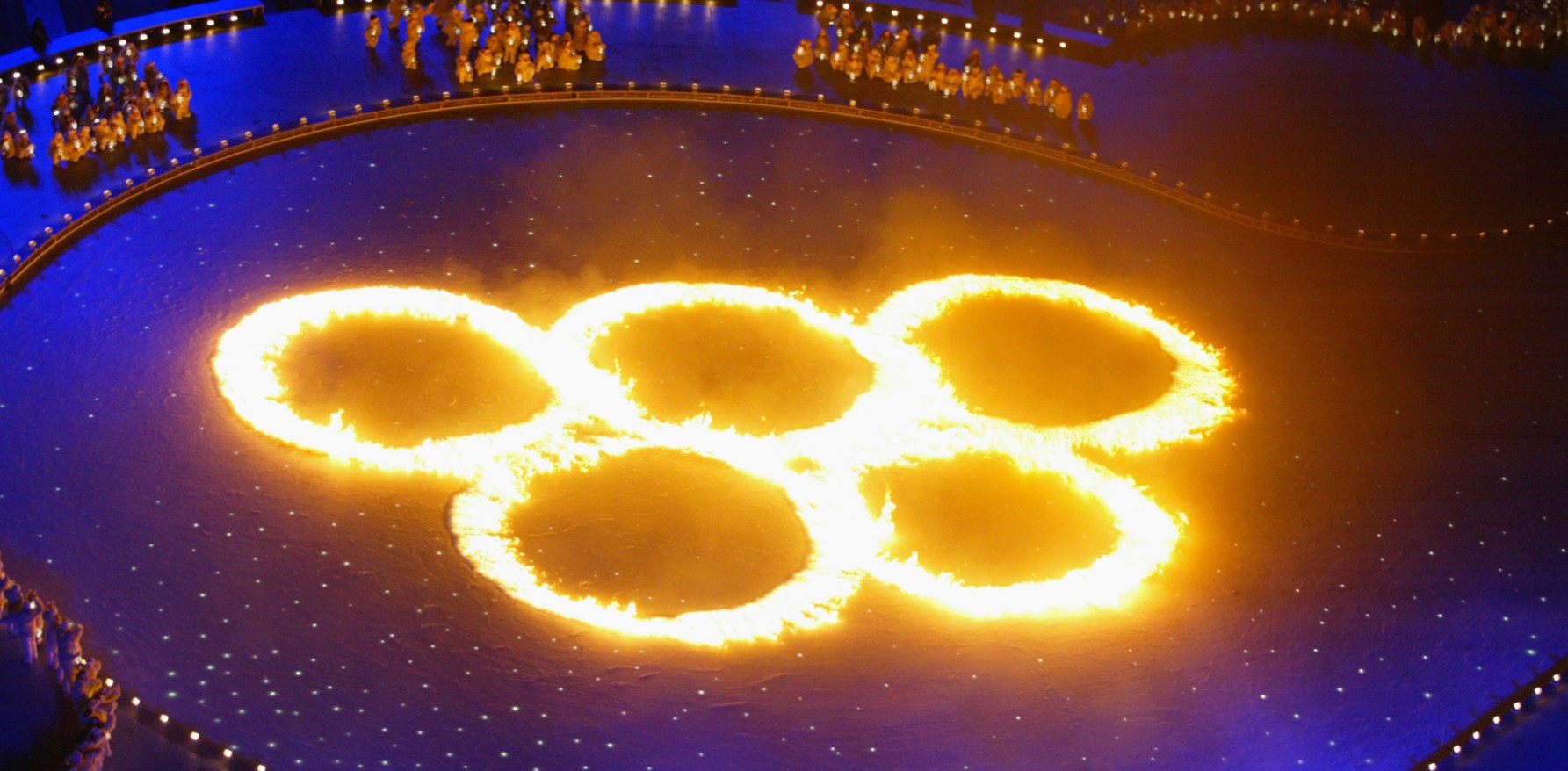
The Russian national team got caught at a doping scandal in 2016.
Before the 2016 Rio Olympics, the International Olympic Committee called for an emergency regarding the participation of Russian athletes in the games. They decided to investigate and review the athletes due to the controversial allegations of doping. In the end, only 271 Russian athletes passed to compete in the games.
American swimmers got arrested in Brazil for vandalism.
American swimmers faced disappointment from their supporters after the news of their vandalism spread. It all happened during the 2016 Rio Olympics. Brazilian reporters state that Ryan Lochte, Jimmy Feigen, Gunnar Bentz, and Jack Conger allegedly vandalized a gas station bathroom. There, two security guards forced the four athletes to pay for damages by showing off their guns. However, sports fans became puzzled when the four swimmers told a different story to the Federal Police of Brazil.
The swimmers played victim claiming they got robbed by gunmen disguised as police. Unfortunately for them, Brazilian officials caught their lie and detained Feigen, Bentz, and Conger. Lochte, on the other hand, managed to leave Brazil before officials could arrest him.
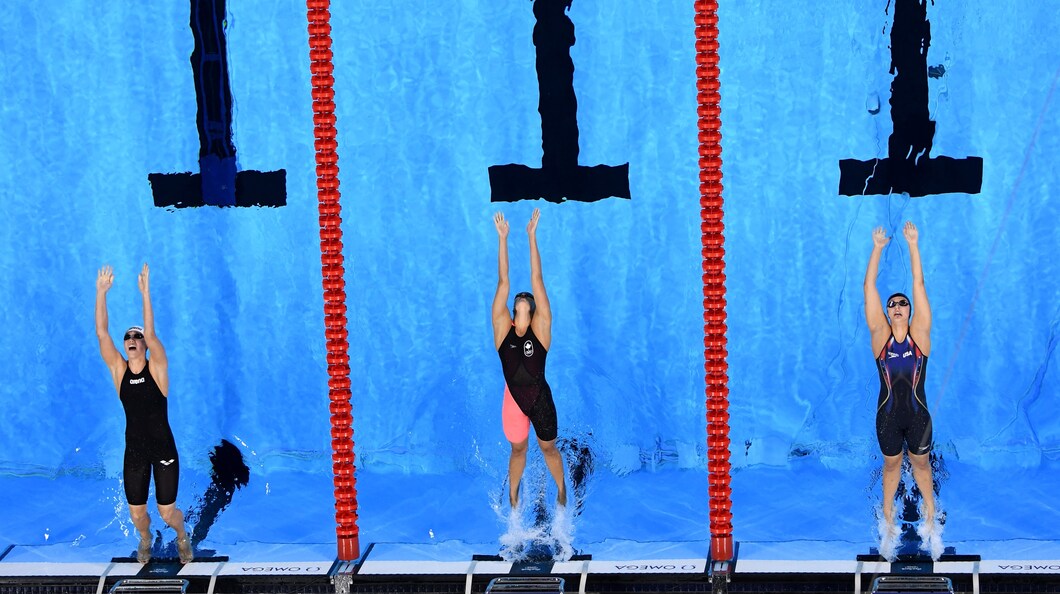
A doped horse was caught during the Olympics.
Norwegian equestrian Tony André Hansen and his horse, Camiro, lost their bronze medal in the 2008 Beijing Olympics after Camiro tested positive for capsaicin. The International Olympic Committee included capsaicin in their list of banned substances due to its stimulating properties. Hansen tries to argue that the capsaicin found in his horse came from treating his horse’s injuries. However, Olympic officials remained strict on their decision.
Was this page helpful?
Our commitment to delivering trustworthy and engaging content is at the heart of what we do. Each fact on our site is contributed by real users like you, bringing a wealth of diverse insights and information. To ensure the highest standards of accuracy and reliability, our dedicated editors meticulously review each submission. This process guarantees that the facts we share are not only fascinating but also credible. Trust in our commitment to quality and authenticity as you explore and learn with us.
